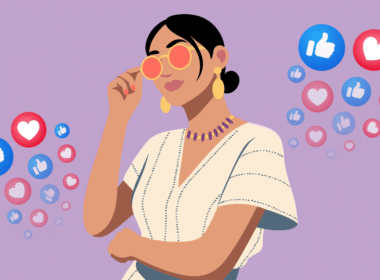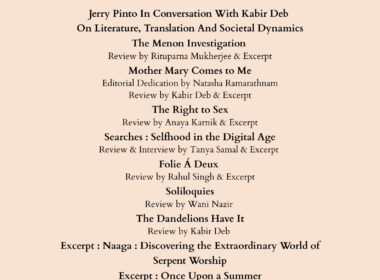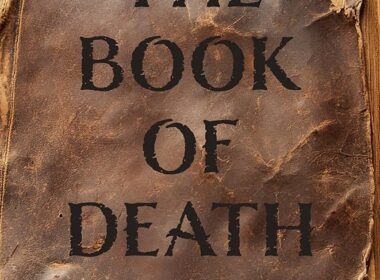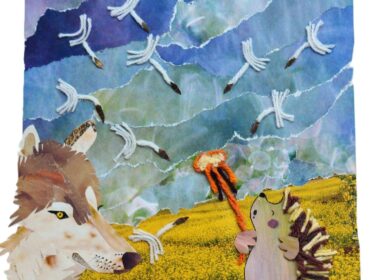Excerpt Searches : Selfhood in the Digital Age
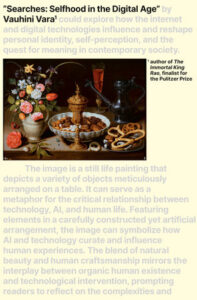
Image Courtesy of HarperCollins Publishers India
My sister was diagnosed with Ewing sarcoma when I was in my fresh-man year of high school and she was in her junior year. I didn’t under-stand then how serious a disease it was. But it was— serious. She died four years later. I thought I would die, too, of grief, but I did not. I spent the summer at home, in Seattle, then returned to college, at Stanford. When I arrived there, the campus hadn’t changed, but I had. I felt like a ghost. At night, my sister would appear in my dreams. In the dreams, she hadn’t died. It had all been a misunderstanding. And she felt hurt that I had accepted it as real and continued on with my life, as if life could go on.But as I said, it wasn’t my life that was going on— not the life I’d had. As I said, I was a ghost. The truth is that, even all these years later, I remain a ghost. You wouldn’t know it if you saw me. I’m not morose or retiring. I laugh a lot. In fact, I’m genuinely happier than many people I know. But I can’t help but feel that, on one level, I do not exist.Here I should conjure my sister for you. Here I should describe her so that you feel her absence as I do— so that you’re made ghostly by it, too. But, though I’m a writer, I’ve never been able to conjure her. I remember the same small set of details: her loud laugh; her bossiness and swagger; her self- consciousness about her broad nose, her curly hair. But even this isn’t fixed. Her hair fell out. Her nose narrowed. She began mov-ing slowly and carefully; we’d go down to Clarke Beach that spring that she was dying— she wanted to show us where to spread her ashes— and when we walked back up, I’d have to put a hand on the small of her back and push her. She did not laugh as often. When we were young, she taught me that when you’re in a car that’s driving past a cemetery, you’re supposed to hold your breath until you pass it. It was a kind of game. Because our parents were immigrants, I had only her to teach me these things. Then, when she was sick, we were passing a cemetery one after-noon, and I said, Hold your breath. She said, sharply, No. I said, Why not? She said, I don’t like that game anymore. It didn’t make me feel sorry for her; it made me angry. Why not? I said again, even though I knew the answer. It felt important to pretend not to. Why not? Why not?I knew I couldn’t live without her. When we were young, and our
Ghosts 161 mom said she was moving out, and we could each decide whether to go with her or stay with our dad, she locked herself in the bathroom and would not come out. I chose Mom, I said. Who did you choose? She said she was still deciding. You should choose Mom, too, I said. She stayed in there a long time. I thought I’d settled on our mom. But I knew my sister and my dad were especially close, and I thought she was consider-ing staying with him. And I thought to myself, All right. If she chooses Dad, I will, too. In the end, Mom stayed, and no one had to decide. But I had already chosen. When I was in college, I used to walk around campus for hours, at night, sometimes in circles. I wanted to walk until my feet bled. I wanted to walk until I passed out. I wanted to walk until I disappeared. In the dream I described, my sister is still alive. I don’t see her, but I know she is there, and I am happy. But it is a dream, and in the dream I’m not in college anymore. I’m home, in Seattle, and I have a job, a boyfriend, and a car. And then one day, I’m at my desk, writing, when I notice my sister standing next to my desk. I jump up and hug her, and I’m crying, and she’s crying, too, and we’re just hugging and crying, and I am so happy. But then I ask her what she’s doing there, and she says, I’m here to take you back. I don’t want to go, I say. I have a life now. And you have to, she says, because I’m dead. You can’t imagine how it felt to lose her. I don’t blame you for that. I can’t imagine it myself. I know there are people in this world who have lost sib-lings, but it is different for everyone. I will tell you how it felt for me. I felt I had lost half of myself. I felt I had lost my right arm. I felt I had lost my left leg. I felt I had lost my tongue. I felt I had lost my heart. I felt I had lost my mind. I felt I had lost my eyes. I felt I had lost my ears. I felt I had lost my breath. I felt I had lost my voice. I felt I had lost my smile. I felt I had lost my laugh. I felt I had lost my tears. I felt I had lost my future. I felt I had lost my past. I felt I had lost my parents, as well. I felt I had lost everything. I felt I had lost everything. And yet, I did not lose everything. I did not stop being me. I did not stop existing. There were things I could do: I could make my bed, I could wash the dishes, I could walk the dog, I could feed myself, I could live in the world.
162 searchesBut it was as if I were an astronaut who had lost his tether, and I was floating around in a space station, a space station without gravity, and even though I knew I was moving, I had no way of knowing whether I was moving toward or away from anything. And even if I could have known, I would not have known what to do about it. I had lost my entire world, and yet I had not lost the world.You can’t know what it’s like to lose your sister. You can’t know what it’s like to lose your sister and not lose your sister. You can’t know what it’s like to lose your sister and still be with your sister. You can’t know what it’s like to lose your sister and still be alive. You can’t know what it’s like to lose your sister and know she is dead. You can’t know what it’s like to lose your sister and know she is dead, and yet still see her. You can’t know what it’s like to lose your sister and know she is dead, and yet still see her. I’ve turned the space station into a spaceship. I’m a ghost, and I’m in a spaceship, and I’m hurtling through the universe, and I’m traveling for-ward, and I’m traveling backward, and I’m traveling sideways, and I’m trav-eling nowhere. I’m hurtling through the universe, and I’m a ghost, and I’m in a spaceship, and I’m hurtling through the universe, and I’m a ghost, and I’m in a spaceship, and I’m hurtling through the universe, and I’m a ghost, and I’m in a spaceship, and I’m hurtling through the universe, and I’m a ghost, and I’m in a spaceship, and I’m hurtling through the universe, and I’m a ghost, and I’m in a spaceship, and I’m hurtling through the universe, and I’m a ghost, and I’m in a spaceship, and I’m hurtling through the universe, and I’m a ghost, and I’m in a spaceship, and I’m hurtling.
Excerpted with permission from Searches : Selfhood in the Digital Age by Vauhini Vara published by HarperCollins Publishers India 2025
Vauhini Vara has worked as a journalist and an editor for The New Yorker, The Atlantic, and the New York Times Magazine. Her fiction has been honored by the O. Henry Prize and the Rona JaffeFoundation. Her first novel, The Immortal King Rao, was a finalist for the Pulitzer Prize, and won the Atta Galatta–Bangalore Literature Festival Book Prize for fiction as well as the JK Paper–Times of India AutHER Award for best debut.
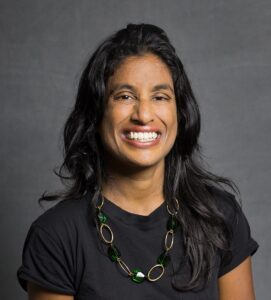
Image Courtesy of HarperCollins Publishers India

